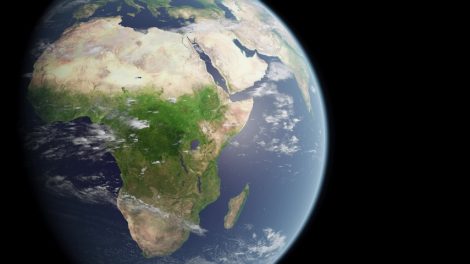Interviewing the head of Italy’s space agency. Last week, when India demonstrated its spectacular advancements in space exploration by successfully landing its Chandrayaan-3 module on the moon, our sister website got in touch with Teodoro Valente, President of the Italian Space Agency (ASI). During the interview, he remarked on the “high scientific and technological validity of the Indian space community” as well as the country’s economic commitment to build its lead.
- “As Italy, we have strong ties with the Indian Space Agency,” he added, recalling that Rome and New Delhi had signed a framework agreement in 2000, as well as a cooperation deal in the field of space sciences and exploration technologies to complement it, and have thus been collaborating for quite some time.
- “To date, we have implemented joint working groups on different topics such as Earth observation, exploration and nanosatellites. So we can say that we have very good relations, which we will certainly intensify in the coming years.”
Italy as a space power. Mr Valente then took to outlining Rome’s position in the global space chessboard, starting by noting that it’s the third-largest economic contributor to the European Space Agency (ESA) budget as well as the leading underwriter of the so-called optional programs. “The economic commitment of the Italian government, and of the scientific community as its operational arm, is absolutely relevant” and contributes to maintaining Italy’s “absolutely first-rate” role.
- Italy, he remarked, is among the few in Europe that can “preside over the whole chain of activities involving space, such as access to orbits, navigation, telecommunications and Earth observation, etc. We are therefore strongly committed to this and will continue to be so.”
Shooting for the moon, again. Rome, like New Delhi, is also part of the US-led Artemis Program, which seeks to bring humans back to the moon. ASI is “confident” that Italy’s industrial fabric and scientific community will “make a major contribution,” said President Valente. “This would not be a novelty: just think of the International Space Station, where about 50% of the modules are of Italian construction. Our tradition is long, strong and established, and the efforts are such that we can remain at the same level while also aiming to increase Italian participation.
- In the framework of Artemis, he continued, ASI is discussing the construction of the Gateway orbital outpost, the lunar habitation modules, the communications control part and more. All these discussions are “well underway” and boast “a significant, relevant and qualified Italian presence through our national industry.”
United States trip coming up. Barring changes of plans, President Valente said he will be visiting the US in October “with an initial component of SMEs and a few large companies” and participate “in a bilateral meeting with NASA.” That’s on top of the institutional meetings that will take place as early as the next International Astronautical Congress, to be held in Baku in early October.
ASI’s strategy, concluded Mr Valente, remains that of “maintaining strong and consolidated relationships, both in the ESA and bilateral spheres,” so as to attain goals that would be otherwise unsustainable using the resources of a single country. He then stressed the need for an international forum “to jointly address space issues,” as space diplomacy – concerning relations with other countries in this field – is “absolutely essential” to “conceive, develop and carry out successful space programs.”




